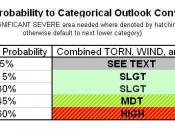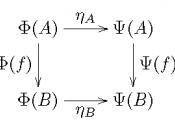The central concept of Kant's Fundamental Principles of the Metaphysics of Morals is the categorical imperative. "The conception of an objective principle, in so far as it is obligatory for a will, is called a command (of reason), and the formula of the command is called an Imperative." (Abbott, 30) An imperative is something that a will ought or shall do because the will is obligated to act in the manner in which it conforms with moral law. The categorical imperative is an obligation by the will to act so that the action can be classified as a universal law. When one acts in conformity with the universal law at all times, they are following out the categorical imperative. This differs from the hypothetical imperative in that the hypothetical imperative acts on the basis that the will in the end will gain something (not a means to an end). The categorical imperative is a means to an end, and the action to obtain the end must have moral worth.
Stipulations of the categorical imperative are that all actions should act only on the maxim, that actions have moral worth, and the end is necessary. From these stipulations, it can be derived that the categorical imperative should be followed in order to live morally. "If an action is conceived as good in itself and consequently as being necessarily the principle of a will which of itself conforms to reason, then it is categorical." (Abbott, 32) "There is therefore but one categorical imperative, namely, this: Act only on that maxim whereby thou canst at the same time will that it should become a universal law." (Abbott, 38) The categorical imperative must be found A Priori and it excludes all interests and desires.
Kant uses four examples to better describe the working of...


